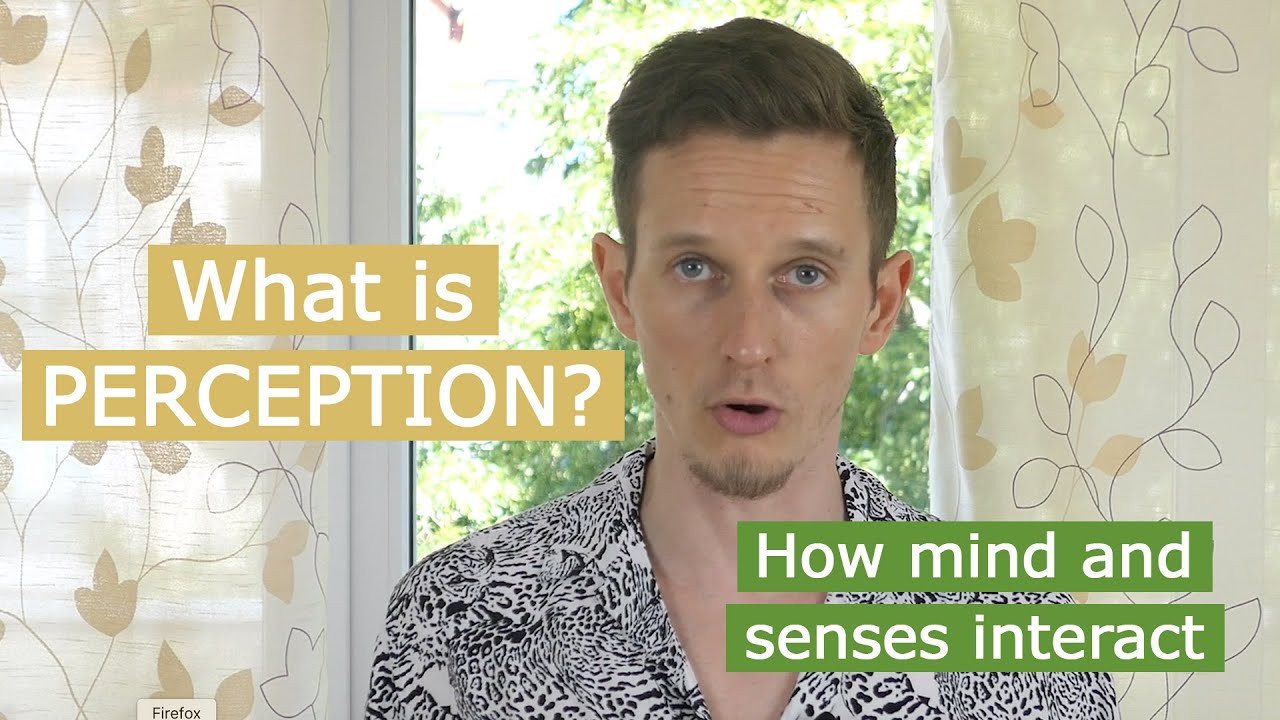What Is Perception?
What is perception? I know, we’ve got something such as facts. How come then that people have different opinions on the same facts? This is due to perception. Perception is a mix of objective facts and subjective experience. Let’s break it down a bit so that it’s easy to understand how mentality interacts with our senses to create our perception.
Deconstruction of Perception
All knowledge we obtain about ourselves and the world is a result of perception. Perception consists of two aspects:
- firstly, our senses whose function it is to gather information from the environment;
- secondly, our mentality or mind that processes what our senses provide from the environment;
There’s information coming on us from all over the place: sound, light, heat, pressure etc. This information is registered through special nerve cells in our body, in special organs such as eyes that respond to electromagnetic waves, ears that respond to sound, our tongue, nose and tissues that react to other types of information from the surroundings. These types of cells in specialised organs are our senses. Those senses transform the information from the world into electricity and chemistry within our bodies.
However, humans and animals don't just record and store information. Our mentality in the brain also processes information in ways that enable us to understand the world, and to give meaning to that world. That processing of meaning and understanding takes place in our conscious and subconscious mentality in the different divisions of the brain.
How the mind in the brain organises information from the senses can be recognised from various optical illusions. Such illusions prove that perception is a difficult task that involves lots of mental work in the brain. And this processing can sometimes be misleading.
To sum it up: perception equals senses plus mentality.
Mentality processes, organises and interprets the information from the senses by creating an internal structure in the mind that mirrors the outside world. The result of this interaction between senses and mentality is what we call perception. The process of perception is influenced by our mentality, which is our thoughts in the form of expectations, memories, cultural norms, conclusions etc.
Perception & creation of concepts
Our mentality creates concepts of things that it observes through the senses and puts them into its own inner structure that is supposed to mirror the outer reality. What is a concept? A mental concept is a summary of objects, events and phenomena in the outside world into groups with common characteristics. That group of similar objects that exists in the mind is what we call a (mental) concept. An example could be various physical objects such as chairs, tables, cupboards, and shelves summarised into a concept of... furniture.
Furniture is a pure mental concept. It doesn’t exist in real, all you can perceive and touch is specific chairs, specific tables etc. You can never touch all of furniture at once, only its specific physical objects. The abstract concept itself is removed from physical experience and can only be apprehended by mentality.
Based on this insight we can conclude that the function of mentality is to create thoughts, to think. And thinking is the ability of our mentality to create inner abstractions such as concepts, based on physical experience in the physical world.
I hope you can already see that recognising reality as accurately as possible in the mind is really a huge challenge. Everyone’s mind, everyone’s mentality, is a product of personal development, so people can be found at various levels of mental development. These are some of the main reasons for the distortions and wrong perceptions that many people might have about reality, something that you can very easily observe in political discourse, when people talk about really abstract things such as politics, ethics, history, religion and so on. It’s like trying to interpret optical illusions, but for very abstract topics.
thoughts vs. emotions
There’s another major factor that comes into play with regard to perception. Because our thoughts can intermingle with emotions, perception can also be influenced by our moods and feelings. In fact, emotion very often tints our perception at the cost of rational thinking because where emotionality holds sway, mentality backs off. That’s the reason why people hold on to their cherished illusions throughout their whole life. It gives them emotional stability and simplistic patterns for explaining the world without which they would feel insecure. When mentality is underdeveloped, thinking becomes emotionalised by our feelings and that gives us the warm comfort that we know what the world is about which in fact we really don’t.
That’s why it’s part of our personal responsibility to work on the development of our mental, critical faculties so that we can improve our capability of understanding complex reality and avoid personal emotional delusions. These are eternal issues of human nature and they are valid as much today as they were thousands of years ago. This is not going to change any time soon.
Summary of perception
OK, the topic of perceptions can seem very abstract, so thumbs up if you read till here. You discovered that perception consists of information from the senses and mental processing. We identified that human comprehension and understanding is about creating an inner mental structure that mirrors reality through ever more abstract summaries of the outside world into groups of thoughts, which we call concepts. Finally, we recognised that emotionality plays a major role in our thinking processes as long as mentality is not highly evolved and thus independent thinking is not quite possible.
That’s it! You've made it. What can I say? Eternal things should stand and fall on their own merits. I know you appreciate knowledge if you made it till here. Thanks for sticking around and see you in the next one.





